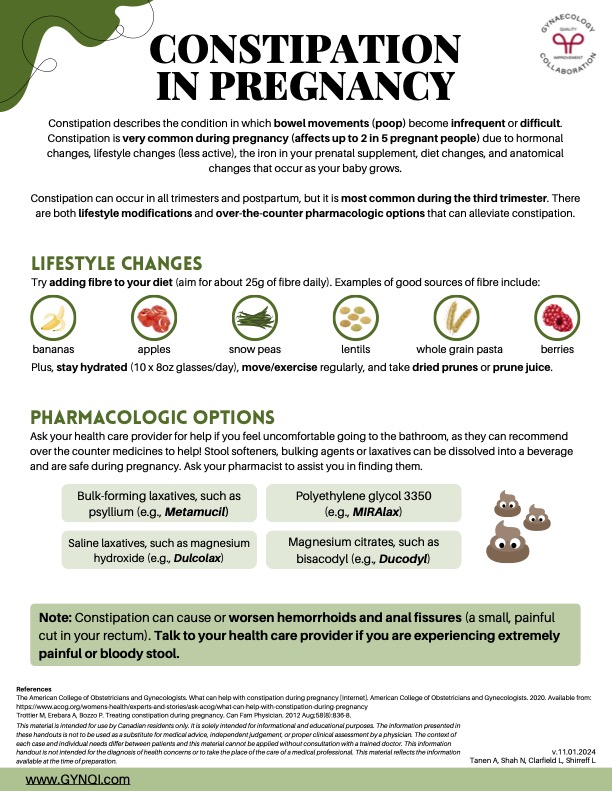
Constipation In Pregnancy
Constipation describes the condition in which bowel movements (poop) become infrequent or difficult. Constipation is very common during pregnancy (affects up to 2 in 5 pregnant people) due to hormonal changes, lifestyle changes (less active), the iron in your prenatal supplement, diet changes, and anatomical changes that occur as your baby grows.
Constipation can occur in all trimesters and postpartum, but it is most common during the third trimester. There are both lifestyle modifications and over-the-counter pharmacologic options that can alleviate constipation.
Lifestyle Changes
Try adding fibre to your diet (aim for about 25g of fibre daily). Examples of good sources of fibre include:
- Bananas
- Apples
- Snow peas
- Lentils
- Whole grain pasta
- Berries
Plus, stay hydrated (10 x 8oz glasses/day), move/exercise regularly, and take dried prunes or prune juice.
Pharmacologic Options
Ask your health care provider for help if you feel uncomfortable going to the bathroom, as they can recommend over the counter medicines to help! Stool softeners, bulking agents or laxatives can be dissolved into a beverage and are safe during pregnancy. Ask your pharmacist to assist you in finding them.
- Bulk-forming laxatives, such as psyllium (e.g., Metamucil)
- Polyethylene glycol 3350 (e.g., MIRAlax)
- Saline laxatives, such as magnesium hydroxide (e.g., Dulcolax)
- Magnesium citrates, such as bisacodyl (e.g., Ducodyl)
Note: Constipation can cause or worsen hemorrhoids and anal fissures (a small, painful cut in your rectum). Talk to your health care provider if you are experiencing extremely painful or bloody stool.



